Ethical Analysis of ER Incident: Balancing Patient Rights & Care
VerifiedAdded on 2023/05/28
|15
|1394
|53
Case Study
AI Summary
This case study analyzes an incident in an emergency room involving an 83-year-old diabetic patient with respiratory distress and gangrene, accompanied by his daughter who reported his Alzheimer's diagnosis. The patient refused a recommended amputation, stating his desire to die with his body intact, while his daughter insisted on the surgery. This situation presented a complex ethical dilemma concerning patient autonomy, beneficence, non-malfeasance, stewardship, and justice. The case explores the roles and responsibilities of surrogate decision-makers, the importance of assessing patient competency, and the healthcare administrator's role in ensuring ethical practices are followed, including adherence to HIPAA guidelines and hospital policies. It emphasizes the need for thorough mental state assessments, verifying the credibility of surrogates, involving proxy surrogates, considering patient wishes, and deliberating decisions until the patient regains mental lucidity. The study concludes that surrogate decision-makers can make clinical decisions on behalf of patients lacking competency, provided they have power of attorney, consider the patient's best interests, and adhere to ethical and legal guidelines. Desklib is a platform where you can find this assignment and many more solved assignments for students.
1 out of 15

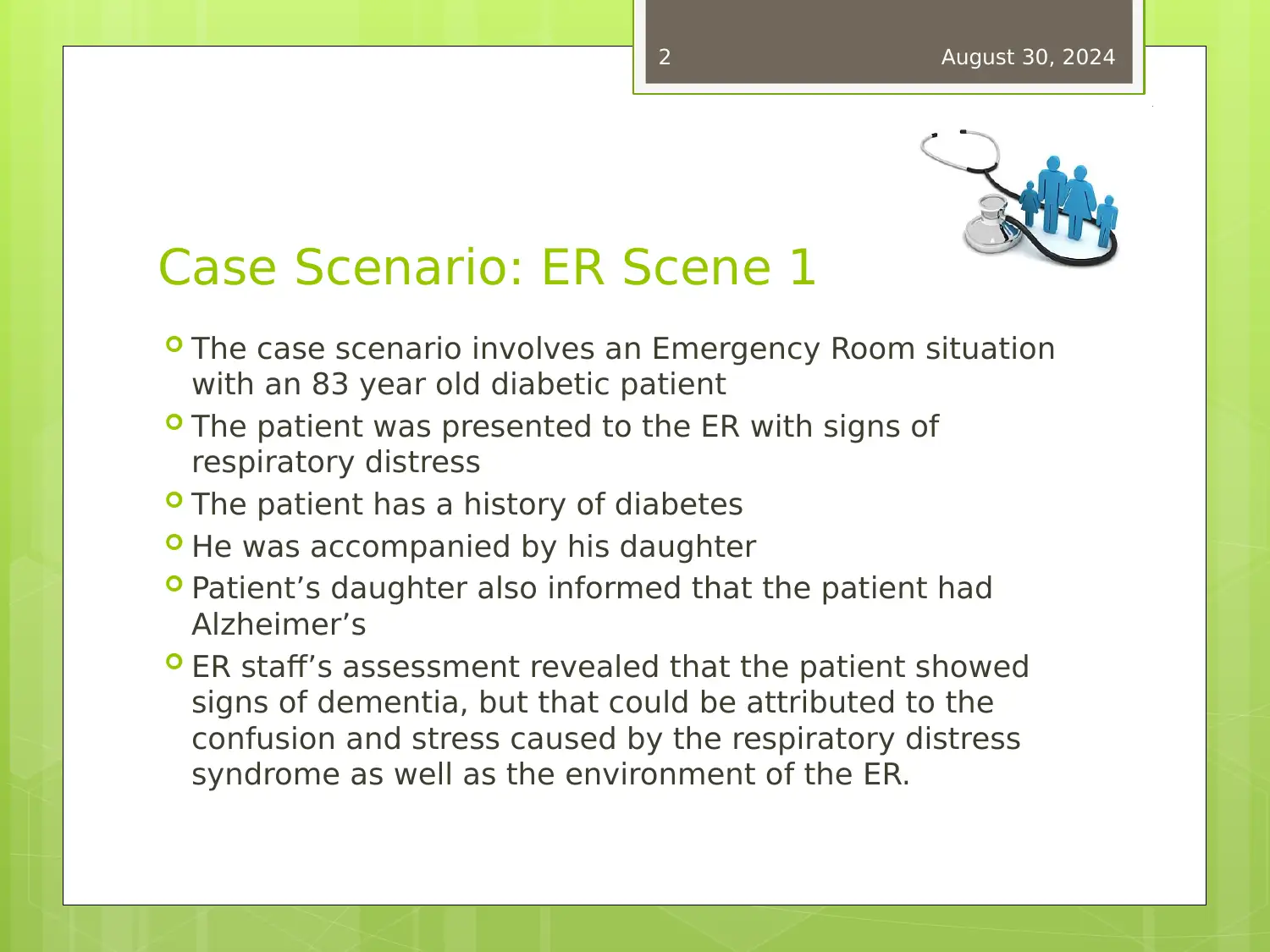
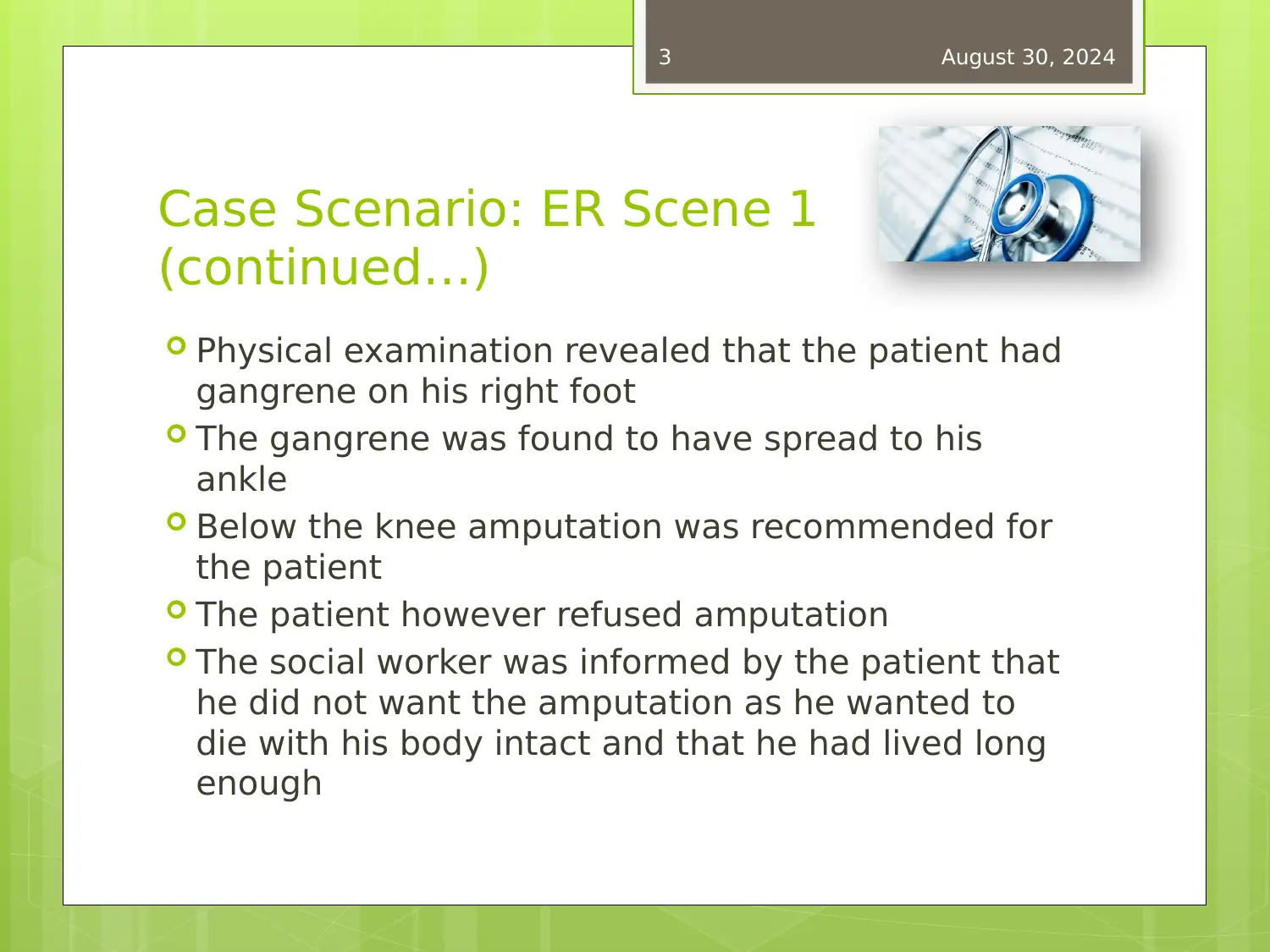

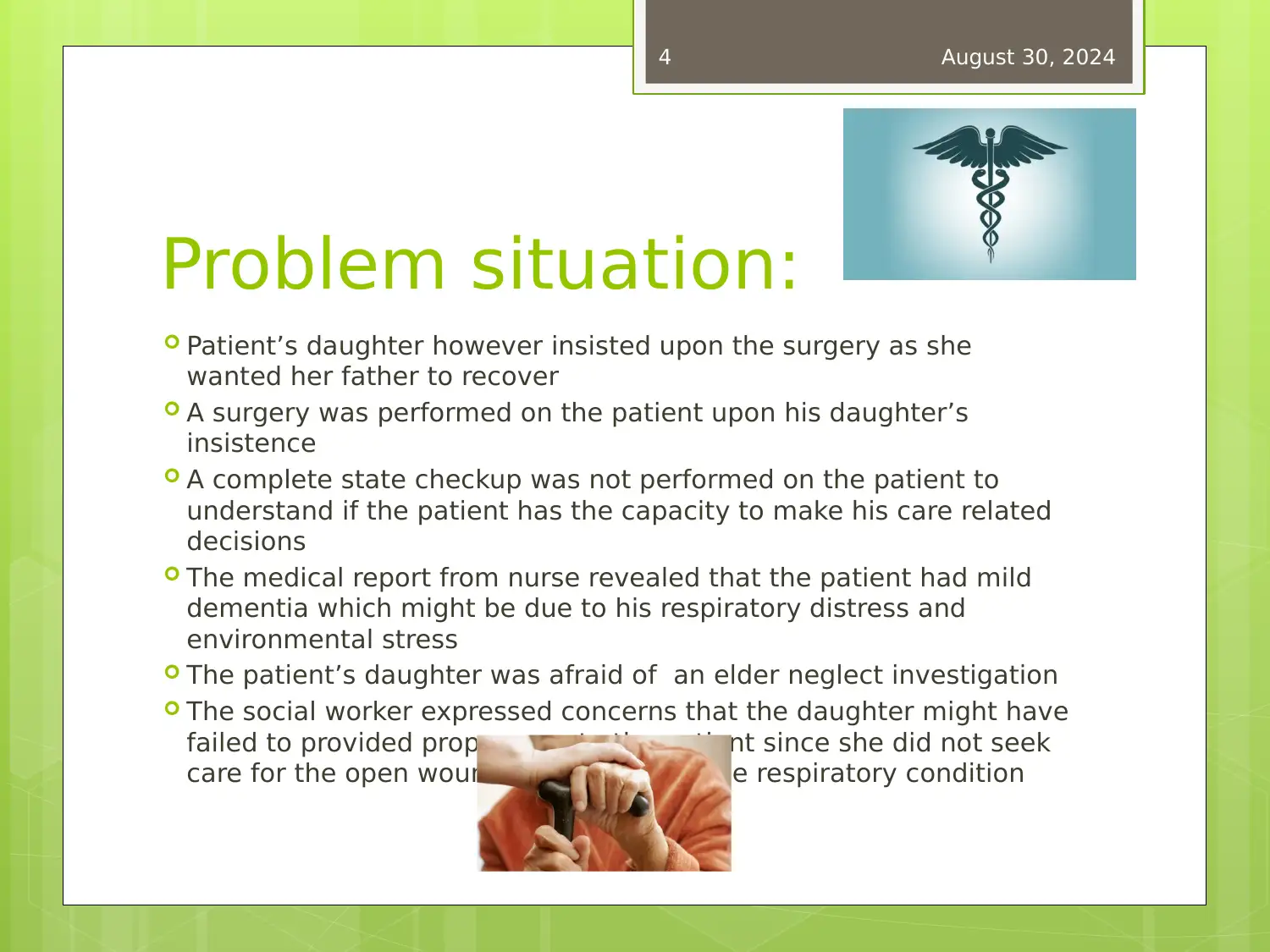
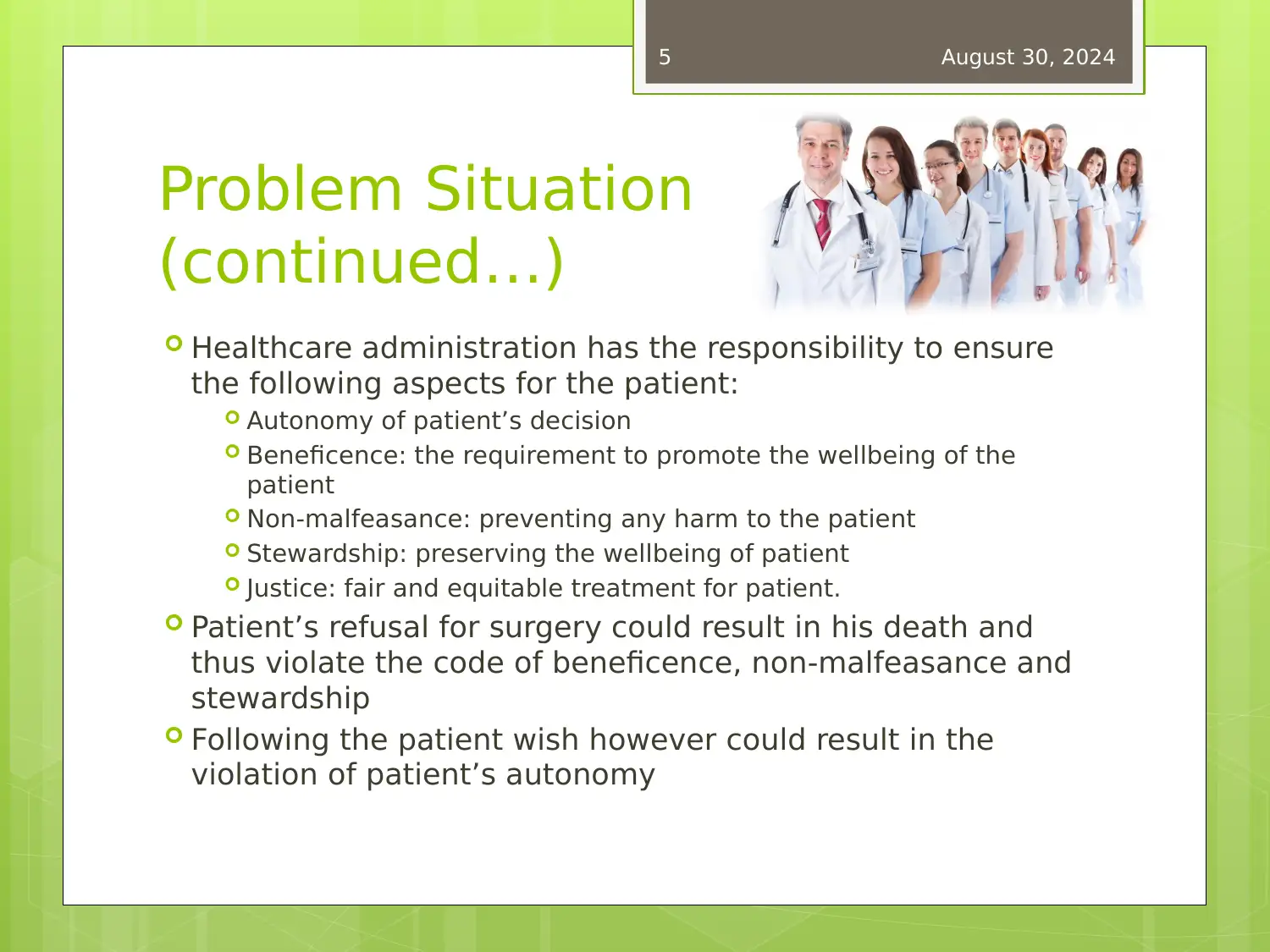
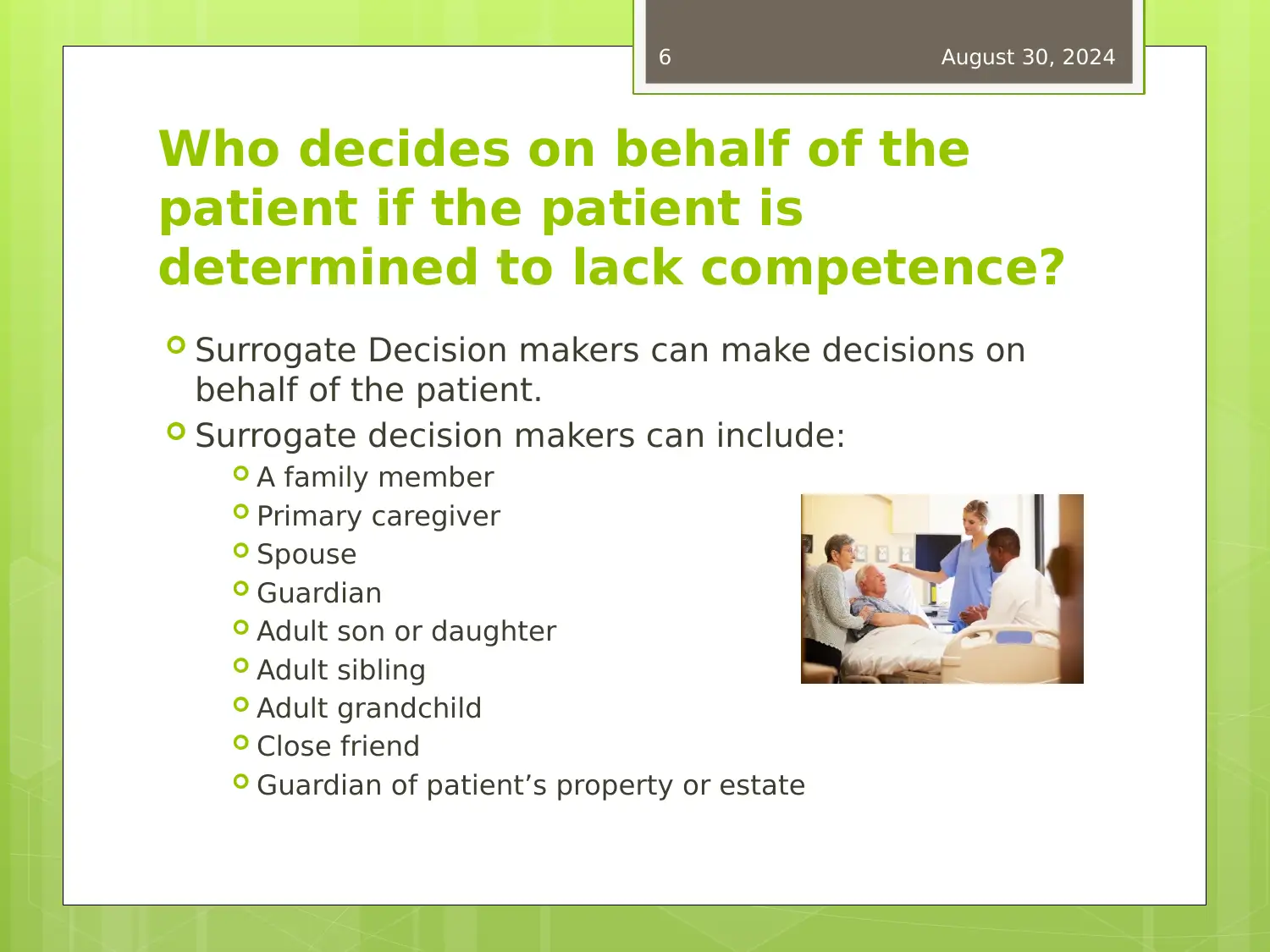
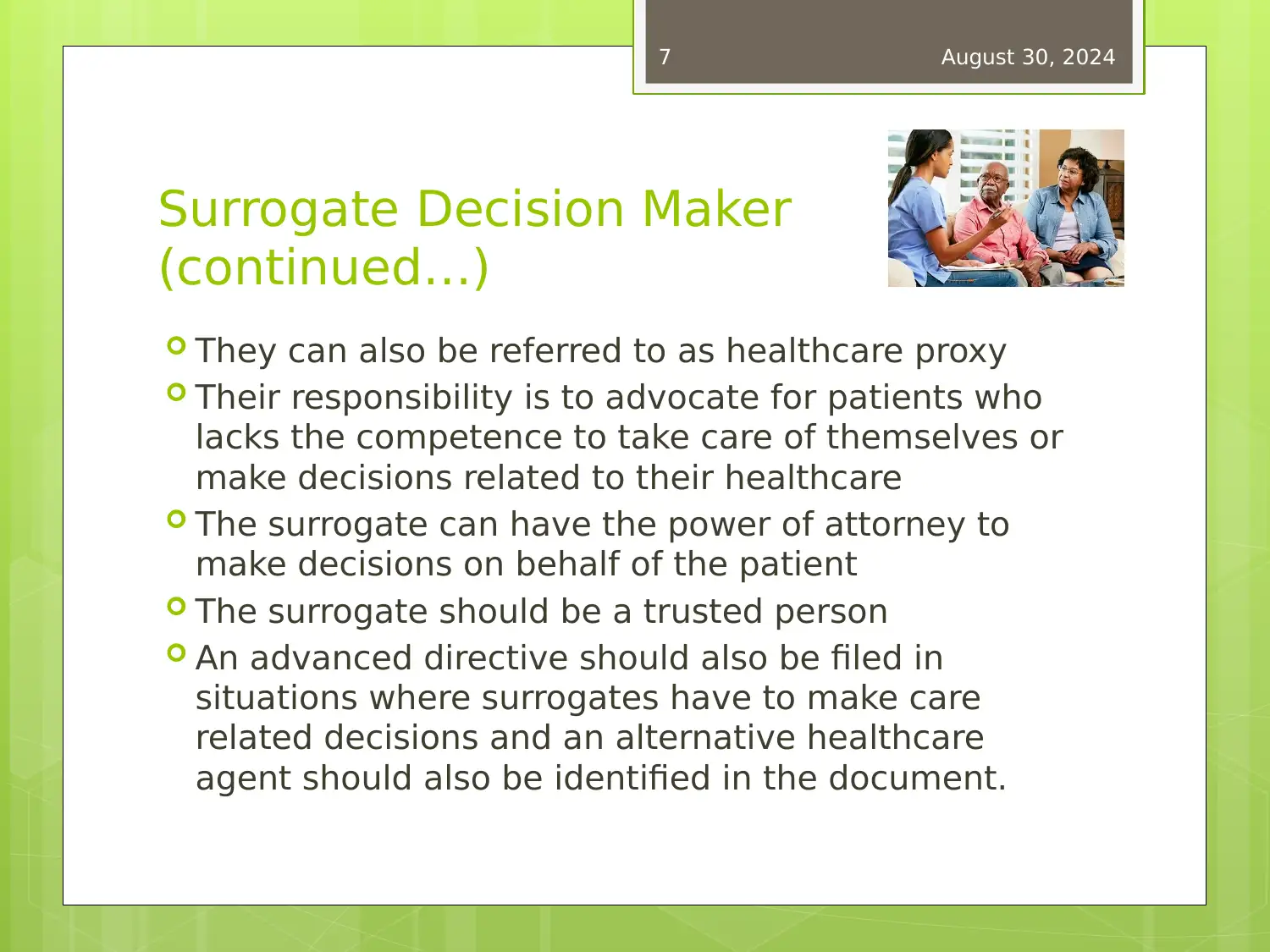
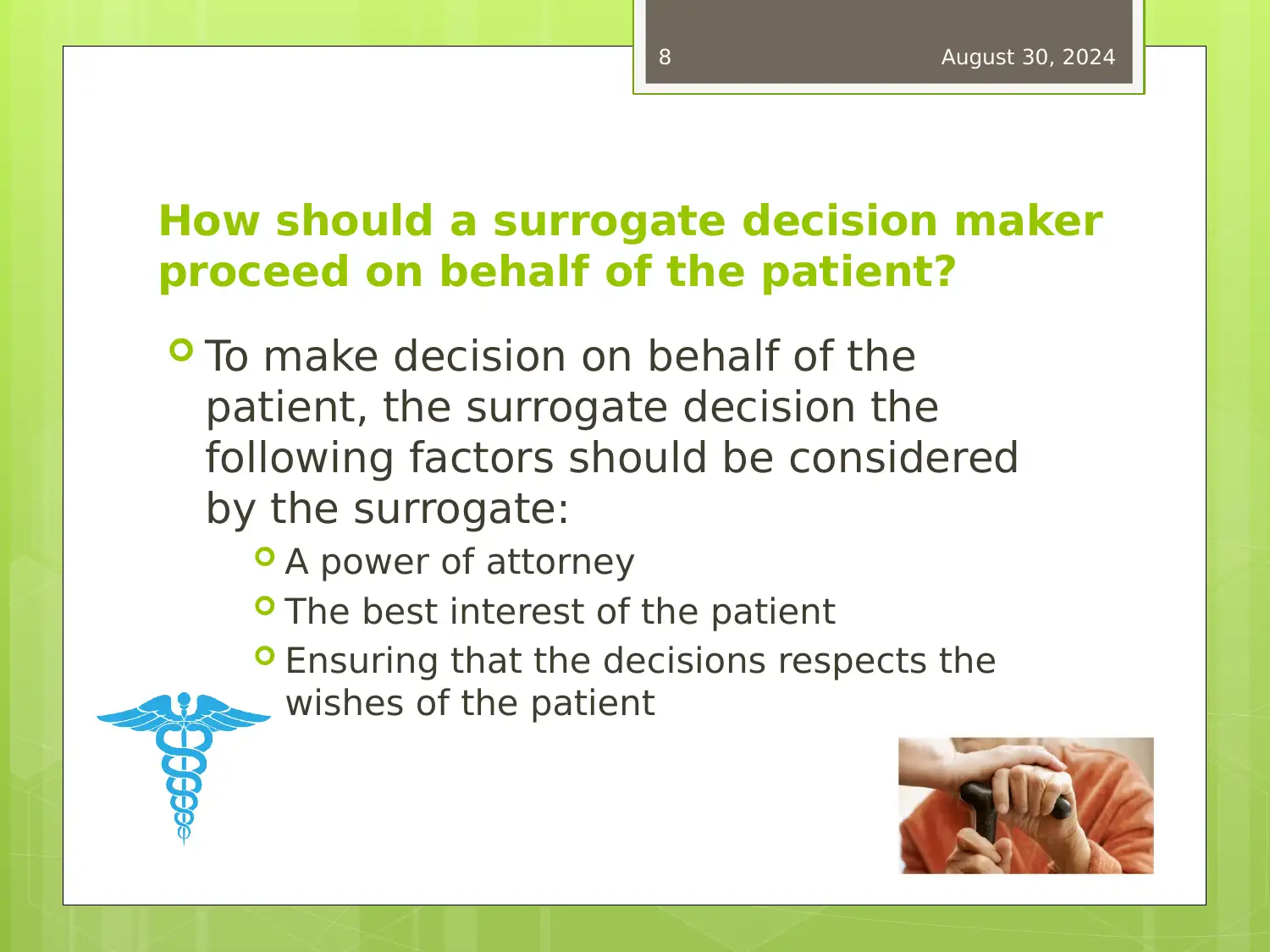
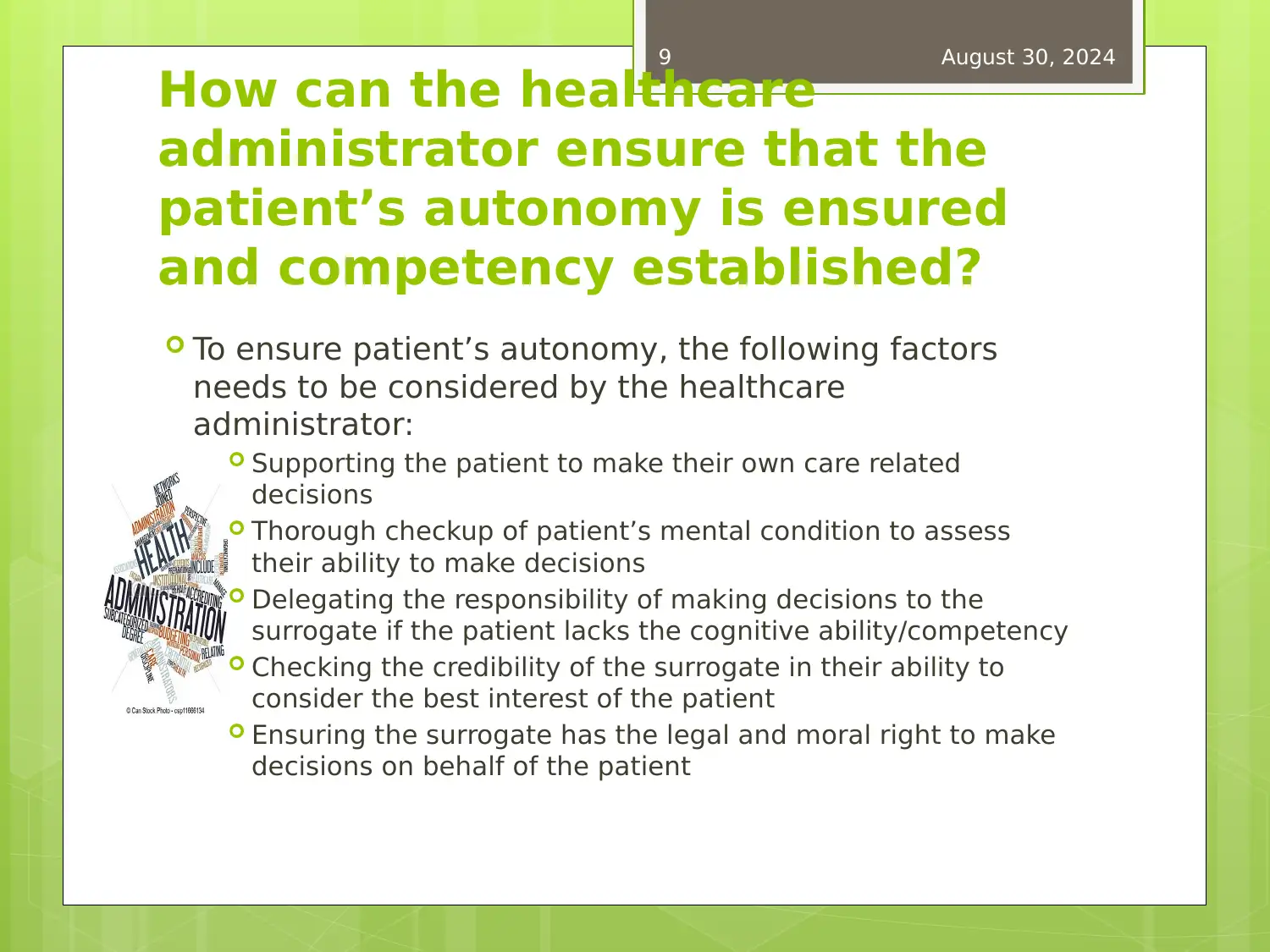
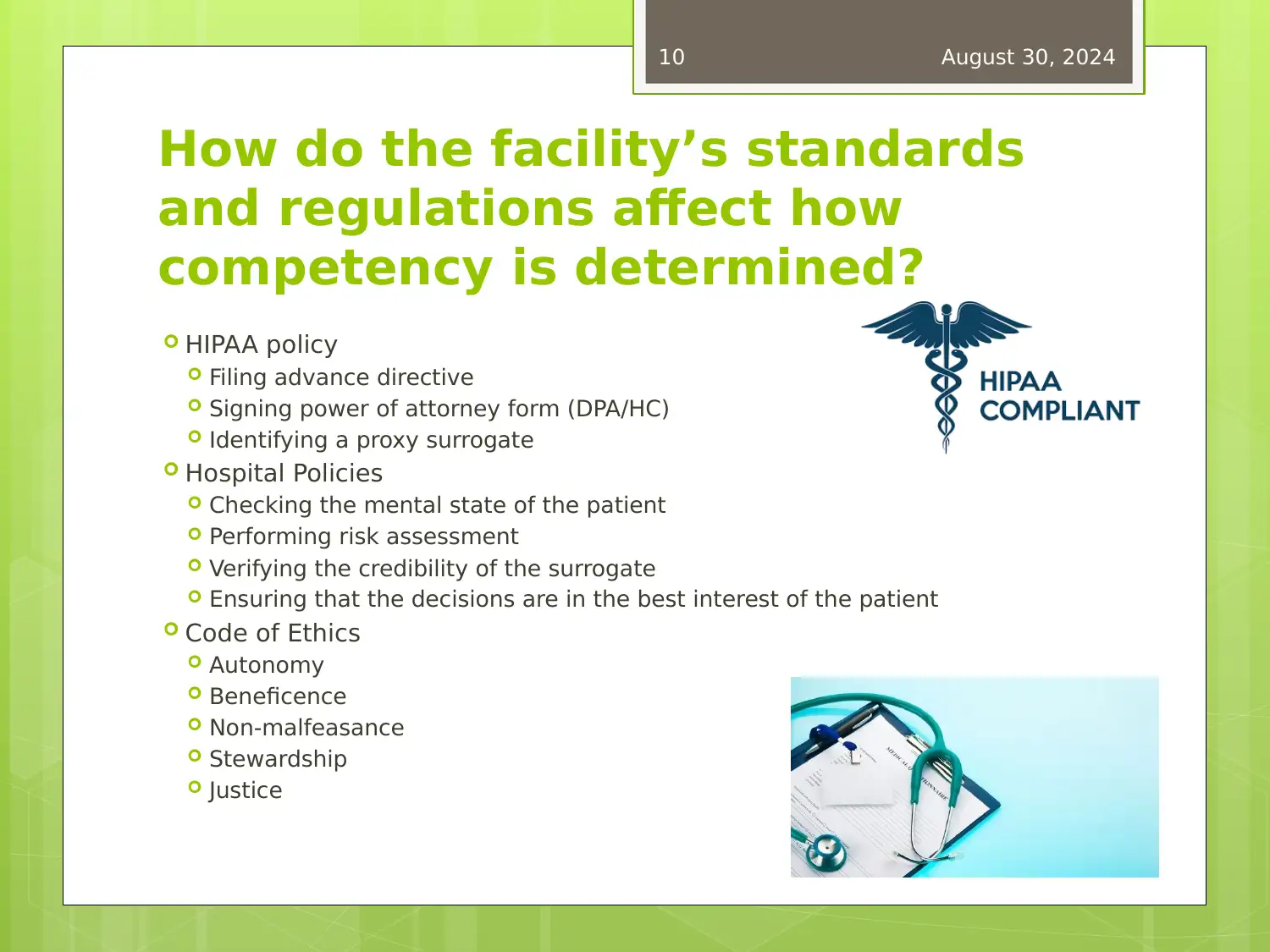
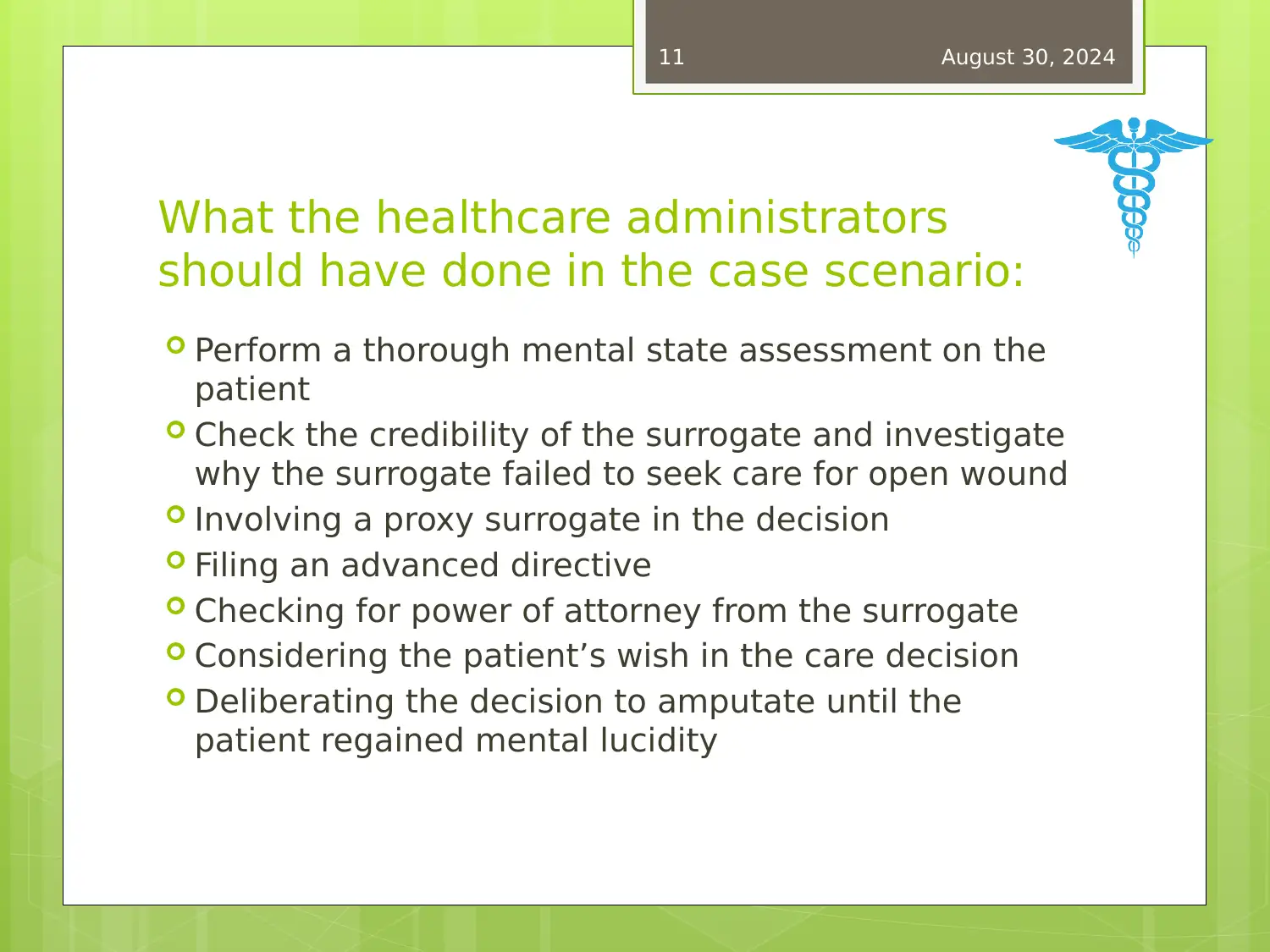
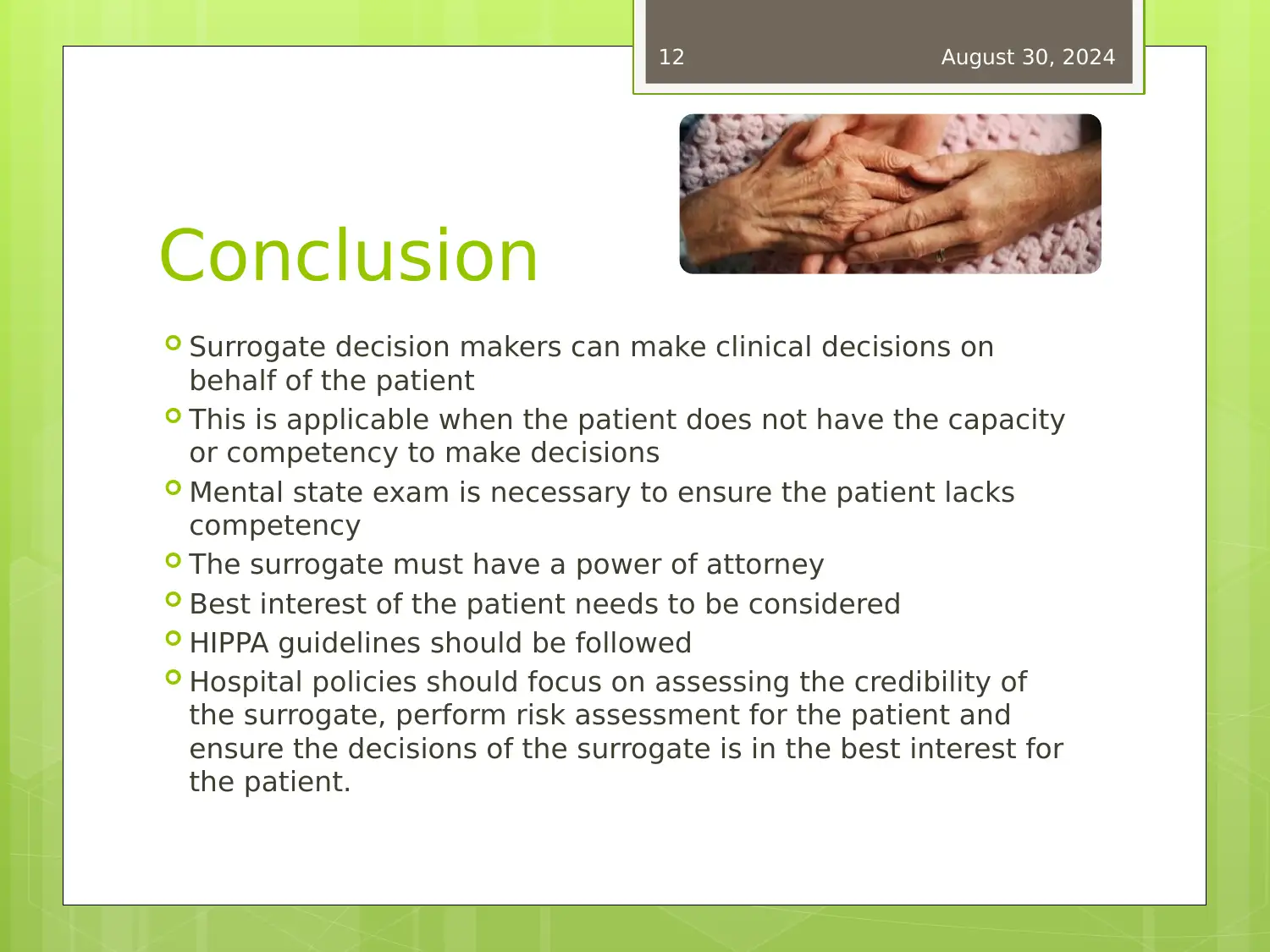

![[object Object]](/_next/static/media/star-bottom.7253800d.svg)